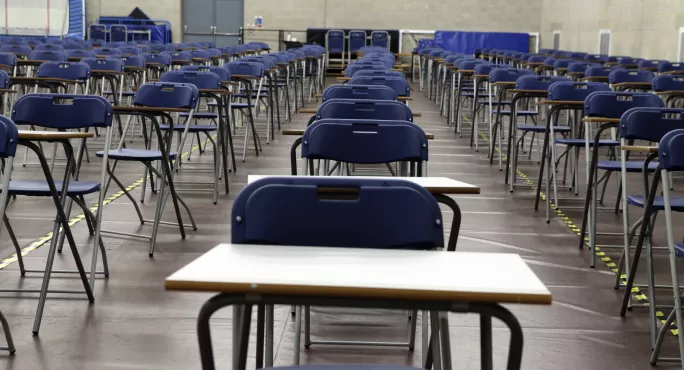Teachers confused over new numerical GCSE grading system
Share
Teachers confused over new numerical GCSE grading system
https://www.tes.com/magazine/archive/teachers-confused-over-new-numerical-gcse-grading-system

More than four out of 10 teachers say they do not understand the new 9-1 grading system that will be introduced at GCSE to replace the A* to G system, research has shown.
A survey by YouGov on behalf of Ofqual, the exams watchdog, has revealed widespread confusion over the new numbered grading scale due to come in by 2017, with two-thirds (64 per cent) of students and more than half of parents (54 per cent) stating they did not understand it.
In contrast, two out of three heads said they understood it, while a fifth said they didn’t.
Under reforms to GCSEs, the new numerical grading system will place 9 as the top grade and 1 as the lowest, with it being suggested that a grade 4 will be roughly equivalent to a C. Students will first receive the new 9-1 grading system in August 2017.
But the YouGov survey of 3,192 people - including 241 heads, 704 teachers, 324 students and 353 parents or carers - suggests the government needs to do more to communicate how the system will work.
“The level of understanding of the new 9-1 grading scale is low amongst young people and parents and not as widespread as may be expected amongst teaching professionals,” the report adds.
The research also revealed that heads, teachers, students and parents were losing faith in GCSEs and A-levels overall, with more than half of heads (52 per cent) stating they felt the standard of marking had deteriorated in the past year.
Respondents also said they felt there had been “too much change” in the GCSE system, with 74 per cent of teachers and 86 per cent of heads agreeing with the statement.
“Concerns remain from some of those working within the education system over standards and accuracy - leading some respondents to feel less confident in the GCSE system than they did last year,” the report says.
Similarly, the Ofqual report, called Perceptions of A-levels, GCSEs and other qualifications, showed nearly half of heads (49 per cent) stated that they were less confident in A-levels than the year before.
Glenys Stacey, Ofqual’s chief regulator, said the data showed there was more the organisation could do to remove confusion.
“There are many positives in this release, most importantly that GCSEs and A-levels continue to be trusted by the vast majority of those who rely on these qualifications,” she said. “There are also areas where we can, and are already doing more, including enhancing our communications with everyone who has an interest in education.”
A Department for Education spokesperson said the new GCSEs and A levels would be “gold standard qualifications that match the best in the world”.
“Parents, teachers and young people need to have confidence that the grades they receive are an accurate reflection of a pupil’s performance. That’s why we’re pleased that the regulator is taking steps to improve the quality of marking and strengthening its oversight of awarding organisations.”
You've reached your limit of free articles this month. Subscribe for £1 per month for three months and get: